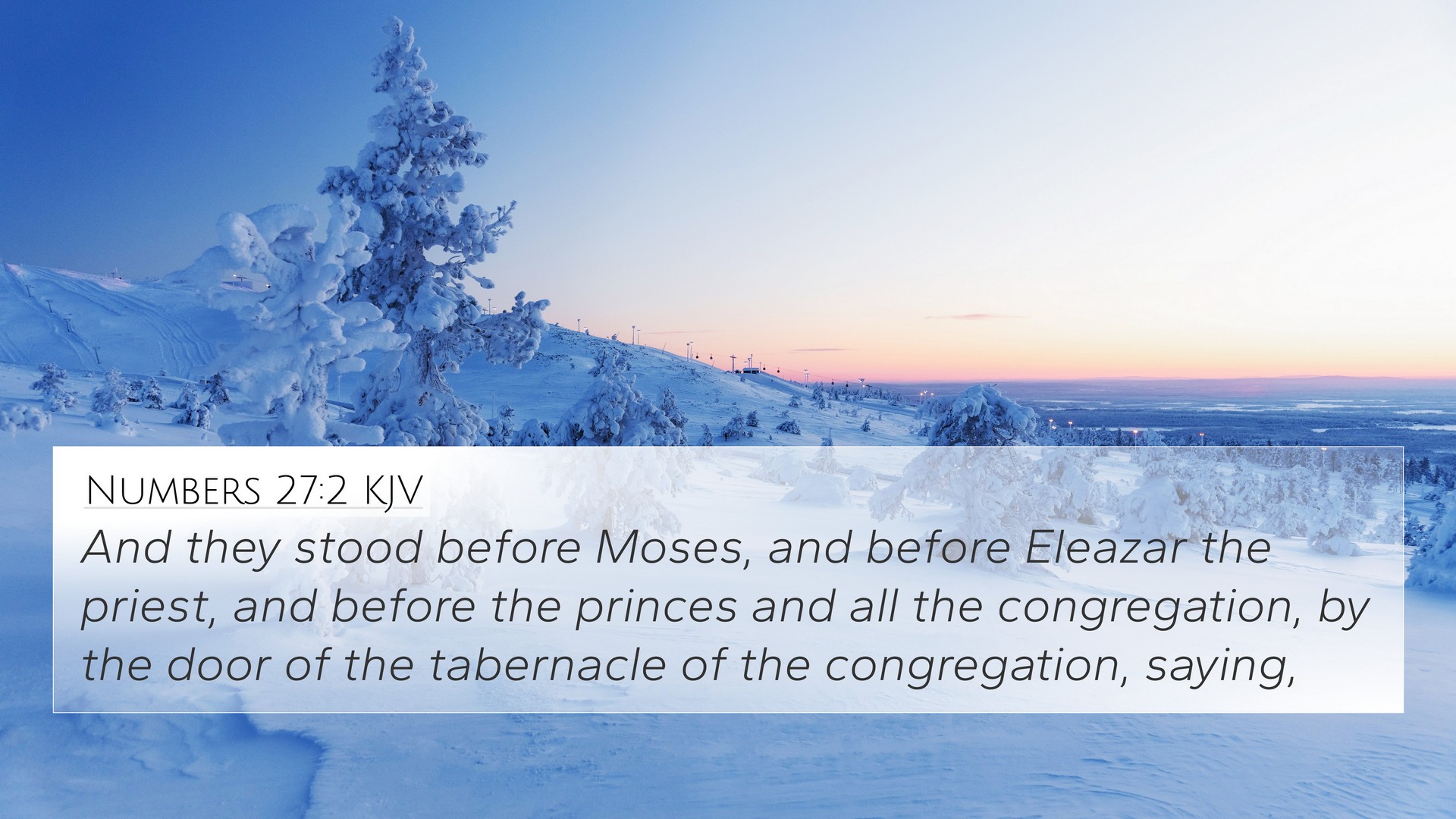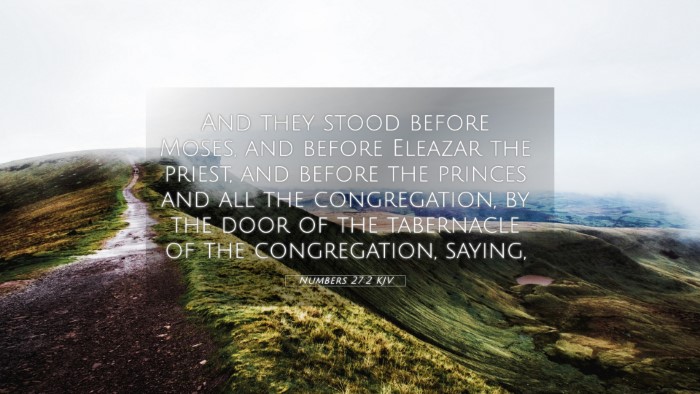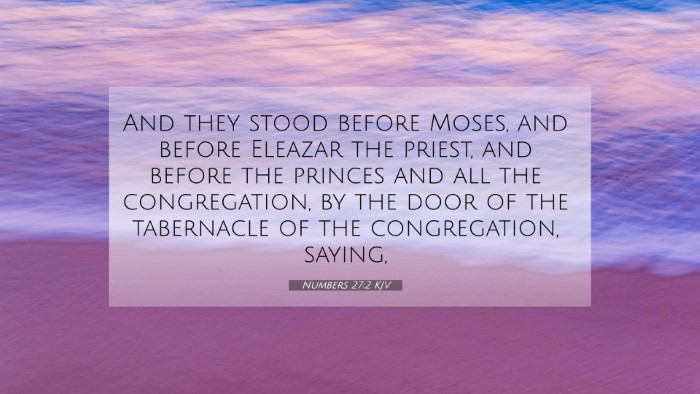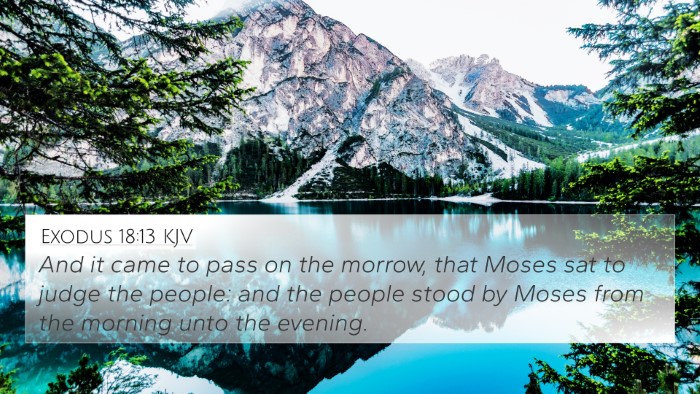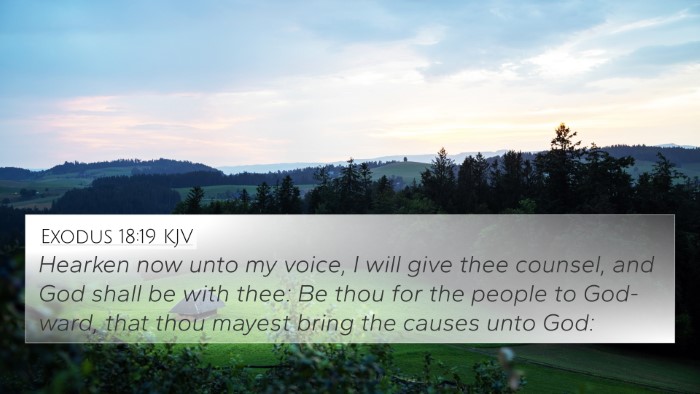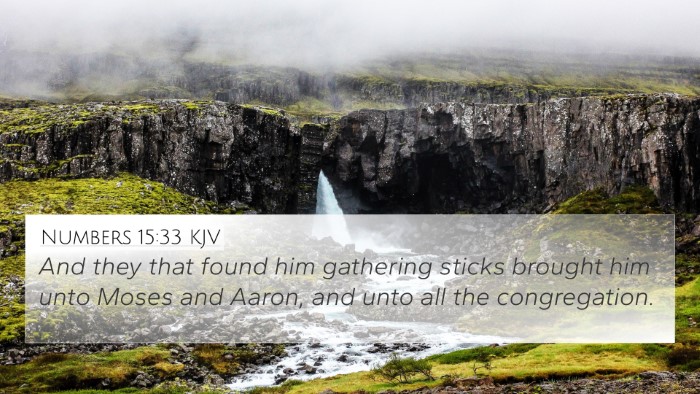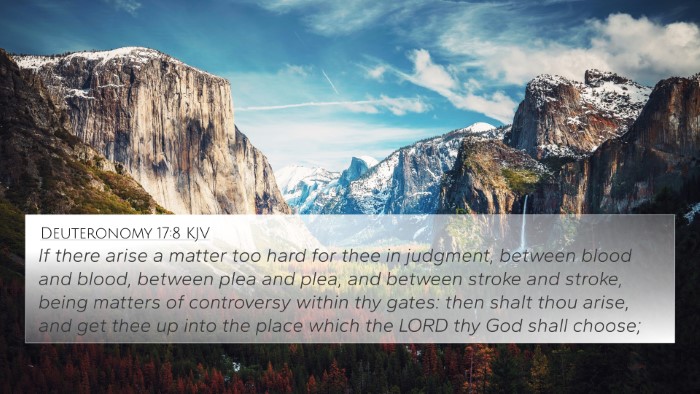Understanding Numbers 27:2
Numbers 27:2 states: "And they stood before Moses, and before Eleazar the priest, and before the princes and all the congregation, by the door of the tabernacle of the congregation, saying," This verse provides a significant moment in the narrative of the Israelites as they seek justice and affirmation of their rights in the land promised to them. The setting of this event shows the importance of community and leadership in the decision-making process in ancient Israel.
Summary of Insights
This verse can be understood through several key aspects, as highlighted by public domain commentaries:
- Moses' Leadership: This verse illustrates Moses’ role as a mediator between the people and God. It showcases the respect and authority that he holds in guiding the Israelites during their journey.
- The Role of Community: The collective presence of the leaders among the congregation emphasizes the importance of communal decision-making in Israelite society. Everyone’s voice matters, especially concerning matters of inheritance and land distribution.
- Divine Will and Inheritance: The request made by the daughters of Zelophehad, likely articulated in this verse, points to the divine concern for justice and equitable distribution of land as a theme throughout the Scriptures.
- Connection to Law and Justice: The action of standing before the tabernacle signifies a quest for justice under the law that God established, demonstrating the intertwining of faith and social justice in scripture.
Cross-References
This verse can be integrated within a broader biblical context through several cross-referenced verses that illustrate similar themes:
- Exodus 18:21-22: This passage shows Moses taking counsel in how to rule over the people, linking back to the necessity of communal advice.
- Leviticus 20:24-26: It details land inheritance, underscoring the importance of the land being God’s gift.
- Numbers 36:1-3: This passage discusses the requirement of the daughters of Zelophehad for land, reinforcing the concerns raised here.
- Deuteronomy 21:17: This verse discusses the rights of heirs, correlating with the theme of inheritance pivotal to Numbers 27:2.
- Psalm 68:5: This verse describes God as a father to the fatherless, addressing social justice that is illustrated in the plight of the daughters.
- Micah 6:8: Discusses the expectation of justice, linking the pursuit made by the daughters to God’s requirement for His people.
- James 1:27: Highlights pure religion as caring for orphans and widows, connecting with themes of care for the marginalized as seen in Numbers 27:2.
Thematic Connections
Understanding Numbers 27:2 through thematic connections can enrich the meaning of this passage:
- Justice and Equity: This theme resonates throughout both the Old and New Testaments, where God advocates for the marginalized.
- God’s Promises: Throughout the Scriptures, the idea of inheritance is closely tied to God’s promises to His people, as seen in Genesis 12:7 and Hebrews 11:8-9.
- Community and Leadership: The interconnectedness of leaders and the community shows the biblical principle that leadership comes with accountability to the people, found in 1 Timothy 5:17.
Conclusion
The verse Numbers 27:2 not only addresses a significant moment in the journey of the Israelites but also serves as a foundation for understanding justice, community involvement, and God’s divine will in the allocation of land and inheritance. By exploring cross-references and thematic connections, one can grasp the broader implications of this verse and its relevance in biblical teachings. For those seeking to deepen their study, utilizing tools for Bible cross-referencing can significantly enhance the understanding of how various scriptures connect and support each other in delivering unified themes of justice and community.
